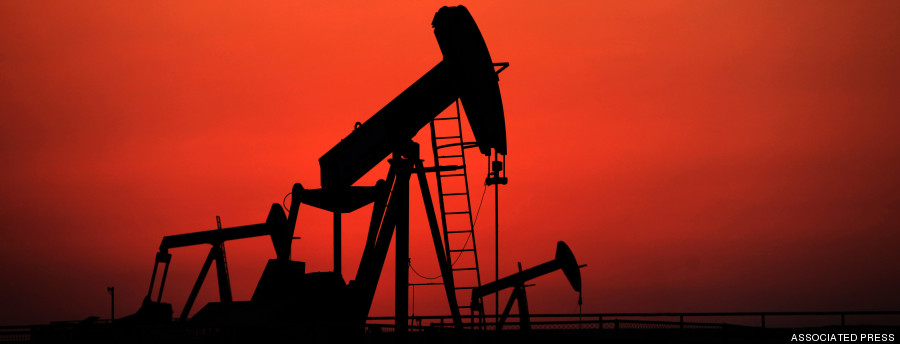Every week, The WorldPost asks an expert to shed light on a topic driving headlines around the world. Today, we turn to Syria and the Islamic State's massive oil revenues.
Source: huffingtonpost.com/
Author: Eline Gordts
News broke last week that U.S. intelligence officials believe the Islamic State, also known as ISIS, has grown into one of the wealthiest terrorist groups in history. According to recent estimates, the militants are making as much as $3 million a day, most of it through the illegal oil trade. U.S.-led airstrikes in Syria this weektargetedsome of the ISIS-controlled oil installations in an effort to curtail the militants' revenue stream.
The WorldPost discussed the Islamic State's lucrative business with Luay al-Khatteeb, a visiting fellow at the Brookings Institution's Doha Center in Qatar and director of the Iraq Energy Institute. Al-Khatteeb warned that the returns of the trade have contributed significantly to the expansion of the terrorist group.
U.S. intelligence officials revealed last week that the Islamic State group is making millions every day from illicit trade in oil. How did the group get to this point?
It's been a gradual development. ISIS and other extremist groups first took over oil assets in Syria during the past three years of conflict there [between rebel fighters and the regime of Syrian President Bashar Assad]. Most of the oil assets they captured are in the eastern part of Syria and many of them shifted hands several times. One day they are controlled by the Nusra front [the al Qaeda affiliate in Syria], the next by ISIS. However, as ISIS intensified its operations and expanded its reach in Syria and Iraq, most of the key oil assets in Syria came into their hands.
When ISIS moved to Iraq in June, it seized control over Mosul and moved into other Sunni-dominated provinces: Tikrit and Anbar. It built on the experience it gained in Syria and added new oil assets in Iraq to the list it was already in control of in Syria.
When the militants take over these fields, do they have the technical capabilities to operate them?
The groups rely on the cooperation of locals, on the people who had been running these operations before. Having said that, the groups did suffer a significant loss of capacity. For example, ISIS is in control of 60 percent of Syria's oil production capacity. Pre-conflict, Syria's production capacity stood at 385,000 to 400,000 barrels a day, so 60 percent would be more than 200,000 barrels. But from what is being reported out of Syria, ISIS appears to only be producing around 50,000 barrels.
The same thing is happening in Iraq. The capacity of the fields under ISIS control is about 80,000 barrels a day. The militants started producing around 20,000, increased to 40,000 and declined again after the start of the U.S. strikes and the joint operations launched between Erbil and Baghdad, between the Kurdish Peshmerga forces and the Iraqi army.
It's also important to note that not all of these fields are staffed by "ISIS personnel," but by other insurgencies or entities that are willing to cooperate with the group. Because of these different operators, the price per barrel varies from $20 to $60 maximum -- still well below the standard international price of about $90.
Who is buying this oil?
There are about 8 million people living in the territory ISIS controls that desperately need fuel and energy supplies, and the group is producing about 70,000 barrels a day between Syria and Iraq. That means that ISIS's first customer basis is the people. However, most of the oil needs to be refined. The crude oil is either refined in small facilities or exchanged across the border -- mostly in Turkey -- for refined oil products. The southern corridor of Turkey has thus become a gateway for oil products and illicit trading that contribute to transnational terrorism.
Would it be possible to shut that trade down?
The Turkish government says it's doing its best, but in reality it's very hard to control the 746 miles-long border. At the end of the day, we are talking about a region that is well known historically for illegal trading and thriving black markets. The difference since the start of the Syrian conflict is that this black market is becoming an instrumental player in the financing of groups such as ISIS. One would hope that U.N. member states, entities and individuals comply with U.N. Security Council resolution 2170 to cut the finances of ISIS, Nusra front and other Qaeda splinter groups
How worried are you about the fact that groups like ISIS control significant oil resources?
The returns of this trade have contributed to the expansion of these terrorist groups. At the beginning of June, most estimates said about 10,000 fighters had joined ISIS. Just 10 days ago, the CIA put the number at 31,000. It is now believed that the oil revenues have contributed significantly to the expansion of the recruitment. About 10 percent of them come from Western countries and could pose a potential threat to national security if those radicals return to their countries as sleeper cells.
Original Article
Source: huffingtonpost.com/
Author: Eline Gordts

No comments:
Post a Comment